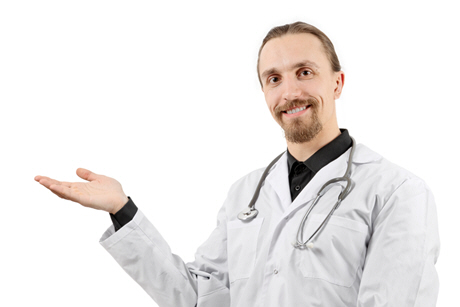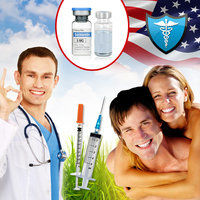Introduction to Hypogonadism
Hypogonadism, a condition characterized by the body's inability to produce sufficient testosterone, has been increasingly recognized for its impact beyond physical health. In American men, this condition can manifest in a variety of symptoms, ranging from decreased libido to fatigue. However, the emotional repercussions of hypogonadism are often less discussed, yet they play a crucial role in the overall well-being of affected individuals.
Emotional Symptoms of Hypogonadism
The emotional landscape of a man suffering from hypogonadism can be profoundly altered. Common emotional symptoms include depression, anxiety, and irritability. These symptoms can be debilitating, affecting not only the individual's mental health but also their interpersonal relationships and professional life. The low levels of testosterone, which is a key hormone in regulating mood, contribute to these emotional disturbances.
The Link Between Testosterone and Mood Regulation
Testosterone plays a significant role in the brain's neurotransmitter systems, particularly those involving serotonin and dopamine, which are crucial for mood regulation. Low levels of testosterone can lead to an imbalance in these neurotransmitters, resulting in mood swings and a higher susceptibility to depression. Research has shown that men with hypogonadism are at a higher risk of developing mood disorders, underscoring the need for comprehensive treatment approaches that address both hormonal and emotional health.
Impact on Quality of Life
The emotional symptoms of hypogonadism can significantly diminish a man's quality of life. Men may experience a loss of motivation, reduced self-esteem, and difficulty in maintaining social connections. These issues can create a vicious cycle, where emotional distress further exacerbates the hormonal imbalance, leading to worsening symptoms.
Diagnosis and Treatment Challenges
Diagnosing hypogonadism involves measuring testosterone levels and assessing symptoms. However, the emotional symptoms can often be overlooked or misattributed to other conditions such as depression or anxiety disorders. This misdiagnosis can delay appropriate treatment, which may include testosterone replacement therapy (TRT). TRT has been shown to improve not only physical symptoms but also emotional well-being in men with hypogonadism.
The Role of Mental Health Support
In addition to hormonal treatment, mental health support is crucial for men with hypogonadism. Counseling and therapy can help individuals cope with the emotional challenges of the condition. Support groups can also provide a sense of community and understanding, which is vital for emotional recovery. Integrating mental health services into the treatment plan can lead to better outcomes and a higher quality of life for affected men.
Preventive Measures and Lifestyle Adjustments
While hypogonadism cannot always be prevented, certain lifestyle adjustments can help mitigate its impact on emotional health. Regular exercise, a balanced diet, and stress management techniques can improve overall well-being and potentially enhance testosterone levels. Additionally, maintaining open communication with healthcare providers about any emotional changes can facilitate early intervention and support.
Conclusion: A Holistic Approach to Hypogonadism
The emotional impact of hypogonadism on American men is a critical aspect of the condition that requires attention and understanding. By recognizing the link between low testosterone levels and emotional health, healthcare providers can offer more comprehensive care that addresses both the hormonal and psychological needs of their patients. A holistic approach, combining hormonal treatment with mental health support and lifestyle adjustments, can significantly improve the lives of men living with hypogonadism.
Contact Us For A Fast And Professional Response

- Unveiling the Link Between Hypogonadism and Mental Health: A Comprehensive Guide for American Males [Last Updated On: February 19th, 2025] [Originally Added On: February 19th, 2025]
- Unveiling the Best Practices in Medical Monitoring for Hypogonadism in American Males [Last Updated On: February 20th, 2025] [Originally Added On: February 20th, 2025]
- Hypogonadism and Sleep Disorders: A Bidirectional Link in American Males [Last Updated On: March 4th, 2025] [Originally Added On: March 4th, 2025]
- Unveiling the Link Between Hypogonadism and Muscle Health in American Males: A Medical Perspective [Last Updated On: March 16th, 2025] [Originally Added On: March 16th, 2025]
- Navigating Hypogonadism in Men with Autoimmune Diseases: A Comprehensive Guide [Last Updated On: March 16th, 2025] [Originally Added On: March 16th, 2025]
- Exploring the Link Between Hypogonadism and Impaired Wound Healing in American Males [Last Updated On: March 16th, 2025] [Originally Added On: March 16th, 2025]
- Exploring the Interplay Between Hypogonadism and Parathyroid Health in American Males [Last Updated On: March 16th, 2025] [Originally Added On: March 16th, 2025]
- Hypogonadism in American Males: Diagnosis, Testosterone Therapy, and Individualized Treatment Considerations [Last Updated On: March 17th, 2025] [Originally Added On: March 17th, 2025]
- Exploring Hypogonadism and Chronic Pain: Diagnosis, Treatment, and Holistic Management [Last Updated On: March 17th, 2025] [Originally Added On: March 17th, 2025]
- Hypogonadism in American Males: Diagnosis, Treatment, and Education Essentials for Physicians [Last Updated On: March 18th, 2025] [Originally Added On: March 18th, 2025]
- Hypogonadism and Prostate Health: Understanding, Managing, and Preventing Complications [Last Updated On: March 19th, 2025] [Originally Added On: March 19th, 2025]
- Hypogonadism and Thyroid Dysfunction: Exploring the Correlation in American Males [Last Updated On: March 19th, 2025] [Originally Added On: March 19th, 2025]
- Hypogonadism and Autoimmune Disorders: Impact, Management, and Future Research in American Males [Last Updated On: March 20th, 2025] [Originally Added On: March 20th, 2025]
- Hypogonadism and Liver Health: A Comprehensive Guide for American Males [Last Updated On: March 21st, 2025] [Originally Added On: March 21st, 2025]
- Hypogonadism's Impact on American Men: Diagnosis, Treatment, and Quality of Life Enhancement [Last Updated On: March 21st, 2025] [Originally Added On: March 21st, 2025]
- Medical Imaging's Crucial Role in Diagnosing Hypogonadism in American Males [Last Updated On: March 21st, 2025] [Originally Added On: March 21st, 2025]
- Exercise as a Complementary Approach to Managing Hypogonadism in American Males [Last Updated On: March 21st, 2025] [Originally Added On: March 21st, 2025]
- Alternative Medicine Approaches for Managing Hypogonadism in American Males: A Review [Last Updated On: March 22nd, 2025] [Originally Added On: March 22nd, 2025]
- Managing Hypogonadism and Kidney Disease: Strategies for American Males [Last Updated On: March 22nd, 2025] [Originally Added On: March 22nd, 2025]
- Ethical Challenges in Hypogonadism Treatment: Balancing Benefits, Risks, and Societal Pressures [Last Updated On: March 23rd, 2025] [Originally Added On: March 23rd, 2025]
- Hypogonadism's Impact on Bone Health: Diagnosis, Treatments, and Emerging Therapies [Last Updated On: March 23rd, 2025] [Originally Added On: March 23rd, 2025]
- Hypogonadism and Hair Loss: Understanding Links and Exploring Treatments [Last Updated On: March 23rd, 2025] [Originally Added On: March 23rd, 2025]
- Hypogonadism's Impact on Respiratory Health in American Males: A Comprehensive Overview [Last Updated On: March 24th, 2025] [Originally Added On: March 24th, 2025]
- Advanced Medical Technologies Transform Hypogonadism Diagnosis in American Males [Last Updated On: March 24th, 2025] [Originally Added On: March 24th, 2025]
- Hypogonadism in American Males: Screening, Diagnosis, and Management Strategies [Last Updated On: March 24th, 2025] [Originally Added On: March 24th, 2025]
- Hypogonadism and Anemia: Diagnosis, Management, and Enhancing Men's Health Quality [Last Updated On: March 25th, 2025] [Originally Added On: March 25th, 2025]
- Hypogonadism's Neurological Risks: Cognitive Decline, Mood Disorders, and Neurodegenerative Diseases in American Males [Last Updated On: March 25th, 2025] [Originally Added On: March 25th, 2025]
- Monitoring Hypogonadism in Long-Term Care: Strategies and Technology for Enhanced Quality of Life [Last Updated On: March 25th, 2025] [Originally Added On: March 25th, 2025]
- Understanding Hypogonadism: Symptoms, Causes, and Comprehensive Management Strategies [Last Updated On: March 25th, 2025] [Originally Added On: March 25th, 2025]
- Hypogonadism's Impact on Skin Health and Testosterone Replacement Therapy Benefits [Last Updated On: March 25th, 2025] [Originally Added On: March 25th, 2025]
- Hypogonadism and Cancer Risk: Understanding the Link and Managing Health [Last Updated On: March 25th, 2025] [Originally Added On: March 25th, 2025]
- Hypogonadism's Impact on Muscle Health in American Males: Diagnosis, Treatment, and Research [Last Updated On: March 25th, 2025] [Originally Added On: March 25th, 2025]
- Hypogonadism and Allergies: Exploring Hormonal Links and Treatment Implications in American Males [Last Updated On: March 25th, 2025] [Originally Added On: March 25th, 2025]
- Hypogonadism and Hearing Loss: A Critical Connection in American Males [Last Updated On: March 25th, 2025] [Originally Added On: March 25th, 2025]
- Hypogonadism's Impact on Immune Function in American Males: Research and Clinical Insights [Last Updated On: March 26th, 2025] [Originally Added On: March 26th, 2025]
- Hypogonadism's Impact on Joint Health and Benefits of Testosterone Therapy [Last Updated On: March 26th, 2025] [Originally Added On: March 26th, 2025]
- Hypogonadism's Impact on Eye Health: Dry Eye, Cataracts, Glaucoma, and TRT Benefits [Last Updated On: March 26th, 2025] [Originally Added On: March 26th, 2025]
- Hypogonadism's Psychological Impact and the Crucial Role of Tailored Counseling [Last Updated On: March 26th, 2025] [Originally Added On: March 26th, 2025]
- Hypogonadism in American Males: Trends, Treatments, and Future Research Directions [Last Updated On: March 26th, 2025] [Originally Added On: March 26th, 2025]
- Hypogonadism and Headaches: Symptoms, Diagnosis, and Holistic Treatment Strategies [Last Updated On: March 26th, 2025] [Originally Added On: March 26th, 2025]
- Revolutionizing Hypogonadism Treatment: Innovations and Hope for American Men [Last Updated On: March 26th, 2025] [Originally Added On: March 26th, 2025]
- Hypogonadism's Impact on Gastrointestinal Health in American Males: A Comprehensive Analysis [Last Updated On: March 26th, 2025] [Originally Added On: March 26th, 2025]
- Medical Nutrition Therapy Enhances Hypogonadism Management in American Males [Last Updated On: March 27th, 2025] [Originally Added On: March 27th, 2025]
- Managing Hypogonadism: Roles of Endocrinologists, Urologists, and Multidisciplinary Teams [Last Updated On: March 27th, 2025] [Originally Added On: March 27th, 2025]
- Hypogonadism's Impact on Dental Health: Symptoms, Management, and Holistic Care [Last Updated On: March 27th, 2025] [Originally Added On: March 27th, 2025]
- Preventing Hypogonadism: Strategies for At-Risk American Men [Last Updated On: March 27th, 2025] [Originally Added On: March 27th, 2025]
- Hypogonadism in Transgender Men: Diagnosis, Treatment, and Personalized Care [Last Updated On: March 27th, 2025] [Originally Added On: March 27th, 2025]
- Medical Social Workers: Vital Support for American Males with Hypogonadism [Last Updated On: March 27th, 2025] [Originally Added On: March 27th, 2025]
- Hypogonadism's Impact on Blood Pressure: Causes, Links, and Management Strategies [Last Updated On: March 27th, 2025] [Originally Added On: March 27th, 2025]
- Hypogonadism and Vision: Symptoms, Diagnosis, and Management Strategies [Last Updated On: March 27th, 2025] [Originally Added On: March 27th, 2025]
- Hypogonadism's Impact on Cognitive Function in American Males: A Review and Outlook [Last Updated On: March 28th, 2025] [Originally Added On: March 28th, 2025]
- Managing Hypogonadism: Diagnosis, Treatment, and Lifestyle Strategies for American Males [Last Updated On: March 28th, 2025] [Originally Added On: March 28th, 2025]
- Medical Rehabilitation for Hypogonadism: Enhancing Recovery in American Males [Last Updated On: March 28th, 2025] [Originally Added On: March 28th, 2025]
- Hypogonadism and Cholesterol: Implications for Cardiovascular Health in American Males [Last Updated On: March 28th, 2025] [Originally Added On: March 28th, 2025]
- Hypogonadism's Impact on Balance: A Crucial Health Concern for American Males [Last Updated On: March 29th, 2025] [Originally Added On: March 29th, 2025]
- Exploring the Link Between Hypogonadism and GERD in American Males: Diagnosis and Treatment [Last Updated On: March 30th, 2025] [Originally Added On: March 30th, 2025]

















